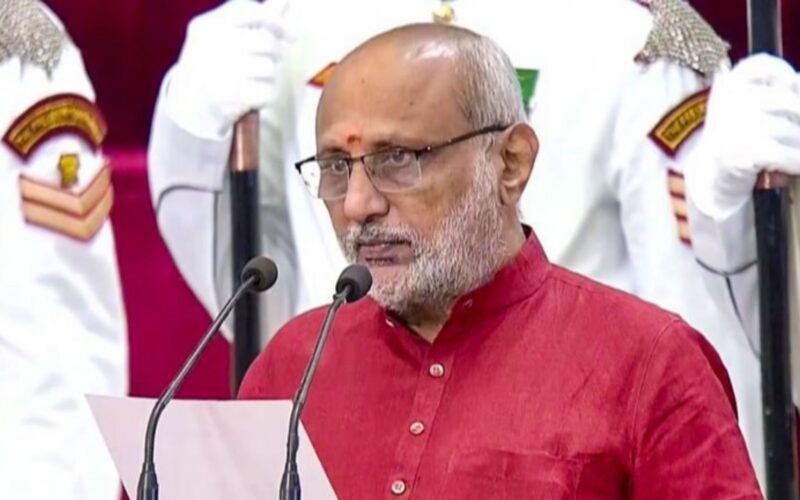New Delhi: C.P. Radhakrishnan was officially sworn in as the 15th Vice President of India during a formal oath-taking ceremony held at Rashtrapati Bhavan on Friday morning. The ceremony, presided over by President Droupadi Murmu, marked the beginning of Radhakrishnan’s tenure as the country’s second-highest constitutional authority.
Clad in a traditional red kurta, the 67-year-old leader took his oath in English, invoking God as he pledged to uphold the Constitution and duties of the Vice President’s office.
Victory in Vice Presidential Polls
Radhakrishnan’s swearing-in follows his decisive win in the vice-presidential elections held earlier this week, where he defeated the opposition-backed candidate, B. Sudershan Reddy, by a margin of 152 votes. Backed by the National Democratic Alliance (NDA), his nomination was widely expected to succeed.
The election was necessitated after the resignation of former Vice President Jagdeep Dhankhar on July 21, who stepped down due to health reasons. Dhankhar, making his first public appearance since his resignation, was present at the ceremony and greeted warmly by those in attendance.
A Ceremony of Dignity and High Attendance
The event drew a high-profile audience that included Prime Minister Narendra Modi, Union Ministers Amit Shah and Rajnath Singh, BJP President J.P. Nadda, and former Vice Presidents M. Hamid Ansari and M. Venkaiah Naidu.
The short but symbolic ceremony was followed by formal greetings and exchanges among senior leaders, reflecting the significance of the constitutional transition.
Former Governor of Maharashtra
Until Thursday, Radhakrishnan had been serving as the Governor of Maharashtra. He relinquished that role upon winning the vice-presidential election. In an interim arrangement, Gujarat Governor Acharya Devvrat has been assigned additional charge of Maharashtra, as per a statement from the Rashtrapati Bhavan.
A seasoned political figure, Radhakrishnan brings with him years of administrative and legislative experience. As Vice President, he will also preside over the Rajya Sabha and play a crucial role in the legislative process, especially during a time of increasing political debate and reform initiatives.
With this transition, the central leadership has reaffirmed its trust in experienced hands as it navigates the country through evolving political and governance challenges.

